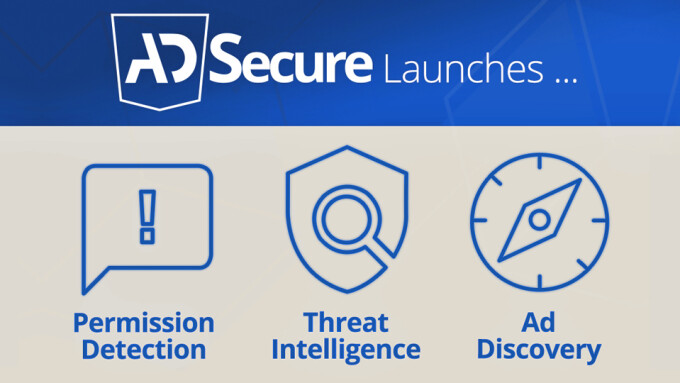LOS ANGELES — AdSecure has released three new tools to help ad platforms, publishers and app developers protect their revenue and users from digital threats — Ad Discovery, Threat Intelligence and Permission Detection.
According to the company, its launch of Ad Discovery marks a new way to continuously monitor ads on websites and mobile pages for malicious threats and poor-quality user experiences. For publishers, Ad Discovery provides insight into the complete visitor journey — from the point that they arrive on the client’s site, to their engagement with the ads they encounter, and finally, revealing where the visitor goes when leaving.
Beyond safeguarding users, Ad Discovery also looks at the greater context of an ad’s placement on the page, providing brand safety and ad quality insights, and marks the first step toward broader solutions that AdSecure plans for full-page analysis and content classification.
“Ad Discovery can be seen as 'Phase One' of our plans to introduce a suite of new tools that allow publishers, platforms and also brands themselves to understand how and where their ads appear on the page, and how their brand will be perceived by site visitors,” AdSecure’s Technical Director Pierre Brouca revealed. “When connected to other initiatives planned throughout the first half of the year, it will allow for a detailed level of content classification for all of our partners.”
The beta release of Ad Discovery is now available.
Next up, the rollout of a new Threat Intelligence tool offers insights regarding a specific URL’s ongoing policy violation patterns and provides an aggregated risk assessment score detailing how problematic the behavior of a particular URL will be. Serving as the first line of defense against malicious activity, Threat Intelligence allows ad operations and compliance teams to understand the danger associated with their campaigns before they launch.
This behavioral analysis estimates the probability and the severity of violations, with the higher the risk, the more probable it is that the URL will present violations, while the lower the risk, the more safely it can be considered. The risk severity scale uses a 1-to-5 score, with one being very low risk and five presenting a very severe risk to users encountering an ad associated with the URL in question.
In addition, Threat Intelligence can be applied via a local database to provide real-time analysis and blocking on programmatic bid responses, allowing RTB platforms to stop malicious activity within their traffic supply chains.
“It’s incredibly important for platforms and publishers to be able to assess risk and stop threats coming from inside the ads they work with both before campaigns are launched and once they are active to ensure dangerous elements are identified and removed before a user can ever be put in harm’s way,” AdSecure Sales Manager Bryan Taylor said. “At the programmatic level, this means assessing bid responses and filtering the danger in real time, which is exactly what Threat Intelligence can do. Within as little as 15 milliseconds, malicious responses can be identified and blocked to ensure user safety and high ad quality.”
The Threat Intelligence tool is now available via API, with integration into AdSecure’s user interface set for March.
Finally, a new Permission API detection tool is available, which informs clients when ads on their sites request the location of a visitor, access their camera or send a push notification request.
“We speak with publishers and site networks who don’t want their visitors to be annoyed by these permission requests, or who don’t want push notification requests involved anywhere on their sites, and want to know when this is happening,” Taylor explained. “One of the benefits of having modern browser technology powering AdSecure is that we can let our partners know when these types of requests are in play, helping them to take care of the problem and keep their visitors happy.”
In related news, AdSecure will attend the TES Affiliate Conference in Cascais, Portugal, from February 28 through March 2.
For more information or to schedule a meeting, email contact@adsecure.com.








